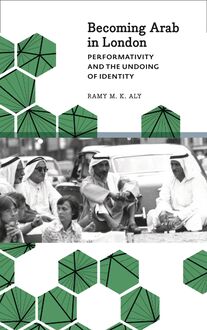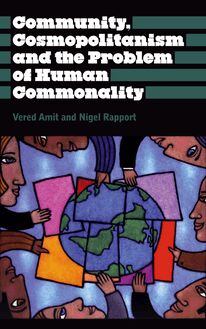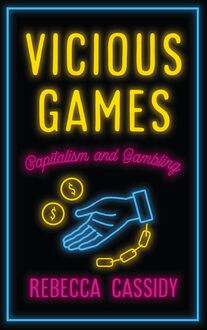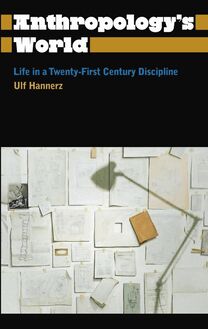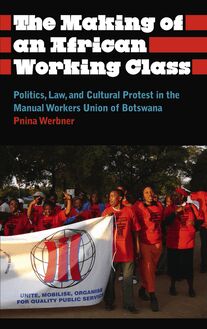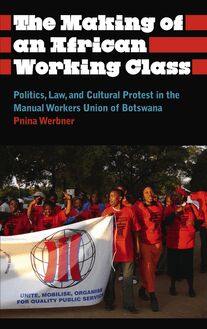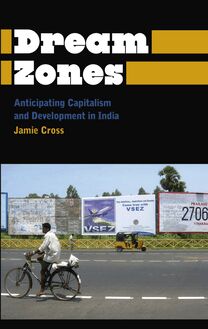Anthropology and the Will to Meaning , livre ebook
133
pages
English
Ebooks
2002
Obtenez un accès à la bibliothèque pour le consulter en ligne En savoir plus
Découvre YouScribe et accède à tout notre catalogue !
Découvre YouScribe et accède à tout notre catalogue !
133
pages
English
Ebooks
2002
Obtenez un accès à la bibliothèque pour le consulter en ligne En savoir plus
Publié par
Date de parution
20 mai 2002
Nombre de lectures
1
EAN13
9781849641418
Langue
English
At the heart of the book is the idea that anthropologists are driven to produce knowledge not by a desire for power, as it is often assumed, but a by desire for meaning. Interpretation of Othered societies and cultures allows them to construct an image of a symbolically unified, ethically ordered and hence meaningful world.
Vassos Argyrou shows this assumption to be untenable because differentiation and distinction are in the nature of human being. He further argues that, paradoxically, by trying to uphold Sameness, anthropologists reproduce, inadvertently but inevitably, its contrary.
1. Introduction: Of Scholars, Gamblers and Thieves
2. Has There Ever Been a Crisis in Ethnological Representation?
3. The Salvation Intent
4. What the Natives Don’t Know
5. The Ethnological Will to Meaning
References
Index
ANTHROPOLOGY
AND THE
WILL TO MEANING
A Postcolonial Critique
VASSOS ARGYROU
Pluto P Press
LONDON • STERLING, VIRGINIAFirst published 2002
by PLUTO PRESS
345 Archway Road, London N6 5AA
and 22883 Quicksilver Drive,
Sterling, VA 20166–2012, USA
www.plutobooks.com
Copyright © Vassos Argyrou 2002
The right of Vassos Argyrou to be identified as the author of this work
has been asserted by him in accordance with the Copyright, Designs
and Patents Act 1988.
British Library Cataloguing in Publication Data
A catalogue record for this book is available from
the British Library
ISBN 0 7453 1860 6 hardback
ISBN 0 7453 1859 2 paperback
Library of Congress Cataloging in Publication Data
Argyrou, Vassos.
Anthropology and the will to meaning : a postcolonial critique /
Vassos Argyrou.
p. cm. –– (Anthropology, culture, and society)
ISBN 0–7453–1860–6 (hardback) –– ISBN 0–7453–1859–2 (pbk.)
1. Anthropology––Philosophy. 2. Ethnology––Philosophy. 3. Meaning
(Philosophy) I. Title. II. Series.
GN33 .A74 2002
301'.01––dc21
2001006764
Reprints: 10 9876543210
Designed and produced for Pluto Press by
Chase Publishing Services, Fortescue, Sidmouth EX10 9QG
Typeset from disk by Stanford DTP Services, Towcester
Printed in the European Union by Antony Rowe, Chippenham, EnglandCONTENTS
1. Introduction: Of Scholars, Gamblers and Thieves 1
2. Has There Ever Been a Crisis in Ethnological Representation? 10
The Ethnographer as ‘Man’ 11
The Ethnological Representation Par Excellence 19
3. The Salvation Intent 28
The Three Strategies of Redemption 28
Christian Ethnology and Victorian Anthropology 34
Twentieth-Century Paradigms 43
The Ethnological Complicity 56
4. What the Natives Don’t Know 60
The Sociocultural Unconscious 60
Heterodox Consciousness 74
The ‘Heroisation’ of the Thinking Subject 82
5. The Ethnological Will to Meaning 92
The Impossible 92
Sameness and the Beyond 105
The Will to Meaning 112
At the End of the Game 117
Notes 120
References 123
Index 127
vFor Michael Herzfeld
µε αγα´ πη και εκτι ´µηση1 INTRODUCTION: OF SCHOLARS, GAMBLERS
AND THIEVES
This book is about the impossible, if not the impossible in general – for that
would be the domain of philosophers – that version of the impossible which
1manifests itself in ethnological belief and practice. My aim is not merely to
designate what this particular impossible is, to provide an account as to why
it is impossible, or to outline the different ways in which the discipline and its
practitioners have come up against it time and again. It is also, more
importantly, to examine why ethnographers should want to imagine, desire
and strive to demonstrate the impossible to begin with; and to explain –
contrary to those who foresee, foretell or call for an end to anthropology, as
the case might be – why ethnographers, having repeatedly grappled with
the impossible and failed, must nonetheless persist in their efforts to win a
battle that is always already lost.
In ethnological belief and practice, the impossible is the tenet of Sameness.
It should not be assumed however that this notion refers to any sort of
cultural universalism. On the contrary, Sameness is said to manifest itself,
paradoxically enough, in the very cultural diversity that the discipline
applauds and celebrates. It refers to the ultimately unworkable idea that
despite, or perhaps because of their differences, all societies embody the Same
cultural value and worth. It is, in short, the reverse of what ethnographers
strive to refute – racism and ethnocentrism.
To say that Sameness is impossible is not to say that it is nothing. Indeed,
my intention is not to doubt the existence of the phenomenon. Not only do
ethnographers imagine and desire Sameness but they also posit it as the only
‘real’ reality. As I will argue in this study however, although not nothing,
Sameness can never manifest itself in the world. Indeed, every attempt to
demonstrate that this elusive social condition exists and is real does nothing
more than to reproduce its contrary, namely, Otherness, which is to say,
difference understood as cultural inferiority. That this is the case should be
readily apparent if not on theoretical grounds – about which I shall have
more to say in subsequent chapters – certainly in terms of the ethnographer’s
own historical experience. The discourse that more than any other makes it
its business to demonstrate and uphold Sameness is ethnological discourse.
If the history of the discipline is anything to go by however, there is not a
single ethnological paradigm – whether evolutionism, functionalism,
12 Anthropology and the Will to Meaning
structuralism or culturalism, to name only the major ones – that has not
been criticised for dividing the world between West and Other, superior and
inferior. There is not even one that has not been found guilty of the ultimate
ethnological transgression – ethnocentrism.
Such is the ethnological predicament. It is the unhappy, no doubt,
predicament of the ethnographer who struggles (and must struggle) to
redeem Otherness only to reproduce it, inadvertently but inevitably, further
down the road, time and again. It is a predicament not only because
Sameness is impossible but also because the ethnological struggle to attain
the unattainable must continue unabated. Ethnographers must persist in
their efforts to win a battle always already lost because the alternative would
mean nothing less than having to acknowledge the reality of what stands in
opposition to Sameness – racism and ethnocentrism. This is not to
acknowledge that such profanities exist in the world. It is rather having to
recognise that racism and ethnocentrism may be intrinsic to social reality,
inescapable facts of the world. Although it is theoretically possible for
ethnographers to abandon the tenet of Sameness, in practice, and in the absence
of an alternative ethical mythology, it would mean nothing less than having
to bear the full weight of the world. It having to deal with the
crushing realisation that the world is intrinsically ethically arbitrary, absurd
and meaningless.
Yet if Sameness is indeed impossible and at the same time an
indispensable ethical myth, something for the ethnographer to hold on to in the void,
the ethnological predicament becomes as much, indeed more of a
predicament for those on whose behalf the ethnographer’s redemptive
struggle is undertaken and carried out. For it is they who are always at the
receiving end of the ethnographer’s discourse, they who must bear the
burden of Otherness that the ethnographer’s discourse reproduces. What,
then, can these Others do to defend themselves against anthropology’s
humanistic assault? How, in particular, should that Other of sorts, the native
who has chosen to become an ethnographer, respond to the discipline’s
moralising and to the demoralising that it causes? What must I do to keep
at bay those whose ambition in life is to save me? How to free myself from a
discursive practice which is as obsessed with liberating me as incapable of
ever succeeding? In broader terms still, how can I deal with that which
everyone born to the Other side of the divide must inevitably, sooner or later,
in one way or another confront – Western hegemony? What am I to do to
defend myself against the symbolic violence exercised over me by Western
definitions of the world, whether these are humanistic and progressive,
enlightened and tolerant or otherwise?
The native who has chosen to become an ethnographer is not alone in
raising such questions. Nor is he alone in the discursive struggle whose aim
is to decentre the West and to open up space for Other ways of thinking and
being in the world. There are many others, the Western post-structuralists
to begin with, who have opened the way and are leading this struggle –Introduction: Of Scholars, Gamblers and Thieves 3
uncompromising, subversive, vociferously deconstructive; and the
postcolonial scholars themselves, in close proximity, in tune and in line with the
post-structuralist deconstructive impulses – those ‘subaltern’ voices that can
now speak, are being heard and taken seriously. It would seem, then, that
help is close at hand. There is an immense body of critical work to draw from
both for inspiration and in terms of choosing the most effective tactics and
strategies. What is not at all clear is how far post-structuralists and
postcolonial scholars are prepared to go, how far they can go and whether ‘far’
is far enough.
Let me turn first to poststructuralist anthropology. I shall not concern
myself with the debate between it and the modernists which, like any other
such debate, takes for granted what needs to be questioned and examined in
detail. Rather, I shall begin by stating the obvious and in doing so expose
both the limits and limitations of so-called ‘postmodern anthropology’ – what
I shall call in this study, for reasons that will soon become apparant,
heterodox discourse. The obvious, which is at the same time the best-guarded
secret in the discipline, is that there has never been a crisis in ethnological
representation, as heterodox ethnographers claim. No such crisis has ever
befallen the discipline because the most fundamental ethnological
representation – the representation without which there would be no anthropology
– is questioned by no one, not least by the heterodox ethnographers
themselves. This is none other than Sameness. Why this
grand but obviously facile claim then?
What is at stake in the heterodox critique of ethnological representation
is Sameness itself. Much like any other ethnological paradigm, heterodox
discourse strives to uphold Sameness in the face of all those representations
of Otherness that contradict and undermine it. Among such representations,
not as prominent perhaps, but, for a discipline that makes it its business to
uphold Sameness, far more poignant than any which come from outside, are
ethnological representations. Hence the cumbersome (because
contradictory) epistemolo
